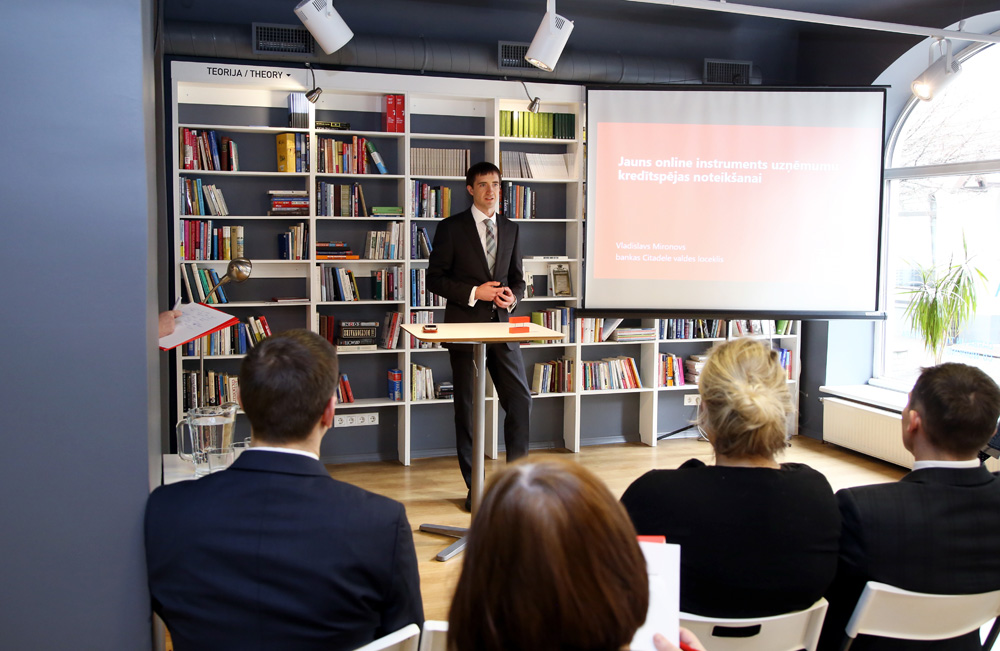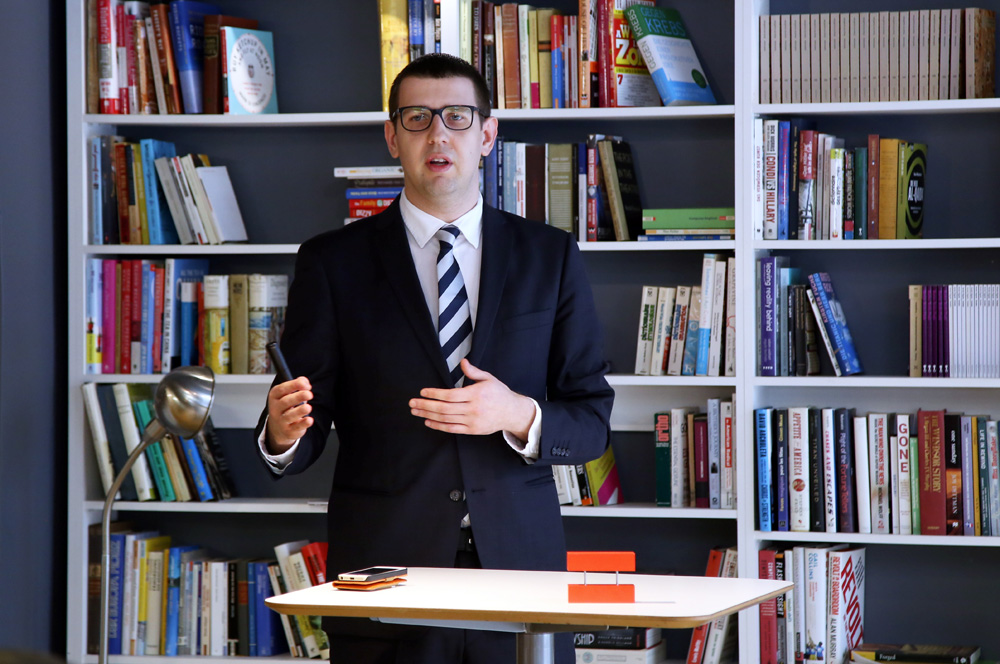To improve the availability of financing for small- and medium-sized businesses (SMEs), Citadele is the first in the Baltics to introduce an online credit rating to determine a business’ individual credit worthiness. Similar to the tool used by private customers, this online credit rating offers the opportunity to discover the loan sum and interest rate available to a business.
“Before now, business owners had to visit a branch to see whether the bank would issue a loan. Meanwhile, it is not normal that private customers can find out their loan options and receive their loan online. Continuing the bank’s digital service development and following best practices worldwide, Citadele is the first bank in the Baltics to also give business owners the opportunity to find out their credit worthiness online. Any Latvian business can find out their potential loan amount and interest rate regardless of which bank they are a client of,” says Citadele bank Board Member Vladislavs Mironovs.

“A credit rating is determined by evaluating and calculating various criteria using a special formula. Timely loan, bill and tax payments, increasing turnover for the business, not too much money currently owed - these are the main criteria that form the basis of a good credit rating, leading to the opportunity to receive a loan with a lower interest rate. Credit rating is also positively influenced by the business’ experience, for example, a business with over two years of active operations will have a better credit rating than a younger business. Credit worthiness is also positively affected by non-changing ownership. If a business owner’s credit worthiness is weak and cannot take on a new loan, then this online tool gives information on areas where the business can improve in order for their future credit rating to improve,” says V. Mironovs.
According to Citadele statistics, last year the majority of loans issued to businesses - or 60% - were microloans. The average microloan amount is 12,000 Euro. Microloans are most in demand among retailers and service providers according to Citadele statistics on microloans in 2017. Business owners use microloans both for the development of the business and as a safety net - as financing for unforeseen expenses.
Business owners can find out their credit rating here.
Small and medium businesses are especially important to the Latvian economy
The importance of SMEs to the Latvian economy is significantly larger than in Europe in general. In Latvia, almost 60% of those employed work in businesses with fewer than 50 employees. If large businesses with over 250 employees create 44% of total added value in European Union (EU) countries, then the contribution of large businesses in Latvia is significantly smaller - 30% of the total, according to Eirostat statistics for 2015.
“In the post-economic crisis period, SMEs in Latvia have grown much faster than large businesses. According to Eirostat figures, the turnover of businesses with fewer than 10 employees has grown by 5.8% (2011-2015), whereas turnover for large businesses with over 250 employees has increased by 3%,” points out Citadele economist Mārtiņš Āboliņš.

At the same time, the availability of financing for the development of SMEs is insufficient. This is shown by FCMC figures demonstrating that loans issued by Latvian banks to SMEs remain in a negative dynamic. Citadele Index survey results also show that, in the large business sector (with 250 or more employees), 68% of business representatives rate their chances of receiving a bank loan as good or very good. Meanwhile, in the small- and medium-sized business sector, 47% of medium business representatives (between 10 and 249 employees) and 34% of micro business representatives rate their chances of receiving a bank loan as good or very good.*
Eduards Filippovs, Chairman of the Board for the Business Union of Latvia, which represents the interests of small and medium businesses, emphasizes that obstacles must be reduced and the variety of available financing for SME investment must be developed, “SMEs still come across problems accessing external financing, especially for ‘risky’ projects, for example, starting a business, innovations, internationalisation and business takeover. It is important to create beneficial regulation for alternative types of financing. Opportunities for SMEs to implement investment projects must be confirmed, which is a prerequisite for the recovery and growth of the true economy,” says E. Filippovs.

When growing rapidly, true availability of financing is important
Since the end of 2015, when the “Raunas dārzs” eclair business began in the small first-floor shop of a block of apartments, its owners had not planned on such rapid expansion. However, a year and a half later, high customer demand led them to think about opening a new “Raunas Dārzs” eclair shop and search for both new premises and employees. Within three years, the business has opened two more eclair shops and has also begun selling their eclairs through business partners.
SIA “Raunas dārzs” co-founder Egija Samsone: “We made a decision on extra financing for our business based on our feelings. Why, you ask? Because we hadn’t planned that, in the space of a year - let alone a few months apart - we would open two eclair shops. The offer from the third premises was unexpected and unplanned, but feelings and questions we had already asked ourselves led us to believe that we wouldn’t regret creating an eclair shop and eclair workshop!”
To open their eclair shop and workshop on Kārļa Ulmaņa Avenue, SIA “Ŗaunas dārzs” used Citadele microcredit.
About Microcredit
Microcredit is a bank loan up to 30,000 Euro available without collateral to the clients of any bank for a freely chosen goal. Interest is paid only on the used, rather than issued, sum.
*Business owners’ evaluation of their chance of receiving a bank loan was determined by the Citadele Index survey, undertaken by research centre SKDS, which surveyed 750 owners and leaders of 750 Latvian businesses.


